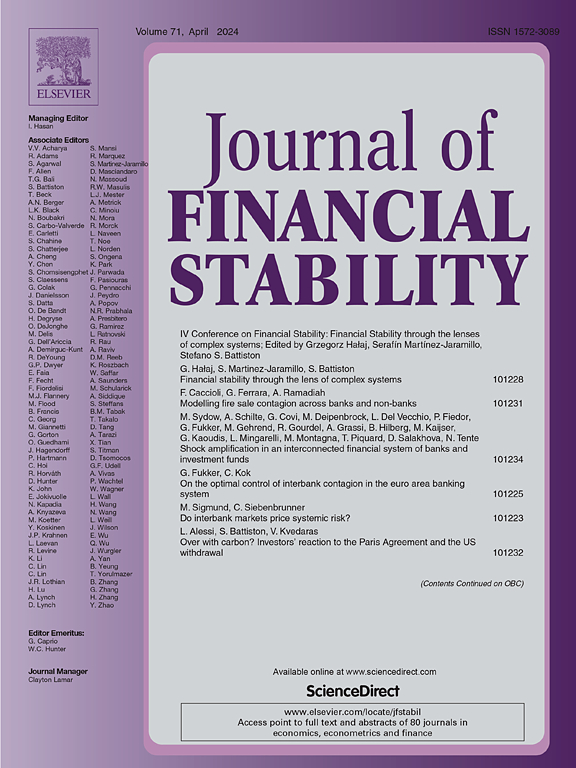What drives U.S. corporate private equity? An historical perspective
IF 6.1
2区 经济学
Q1 BUSINESS, FINANCE
引用次数: 0
Abstract
This study models the closely held (PE) share of U.S. nonfinancial corporate equity over time. Corporate income tax rates, the Sarbanes-Oxley Act, default risk, and the real medium-run Treasury yield significantly affect the PE share, consistent with other studies which separately analyze these factors. The PE share is negatively related to business loan delinquencies and real medium-term Treasury rates. High interest rates discourage PE funds from using leverage to finance buyouts of public companies and fund distributions of interim cash distributions that enhance the relative liquidity of the closely held firms in PE fund portfolios. Interim cash distributions by PE funds help to avoid the double-taxation of dividends, thus causing the appeal of PE to rise with corporate income tax rates, which increases the PE share. The PE share rose during the Enron scandal and after the Sarbanes-Oxley Act (SOX), which increased the costs of continuing as, or becoming, a publicly traded corporation. The PE share is well explained and tracked by key macroeconomic variables as well as tax and regulatory policies.
是什么推动了美国企业私募股权?历史的视角
本研究模拟了美国非金融企业股权中私募股权的长期变化。企业所得税税率、萨班斯-奥克斯利法案(Sarbanes-Oxley Act)、违约风险和实际中期国债收益率显著影响市盈率,这与其他单独分析这些因素的研究结果一致。市盈率与企业贷款拖欠和实际中期国债利率呈负相关。高利率阻碍了私募股权基金利用杠杆融资收购上市公司,也阻碍了私募股权基金分配中期现金分配,而中期现金分配提高了私募股权基金投资组合中被密切关注的公司的相对流动性。私募基金的中期现金分配有助于避免股息的双重征税,从而使私募基金的吸引力随着企业所得税税率的上升而上升,从而增加了私募基金的份额。在安然(Enron)丑闻和萨班斯-奥克斯利法案(Sarbanes-Oxley Act,简称SOX)出台后,私募股权上涨,该法案增加了继续作为上市公司或成为上市公司的成本。关键宏观经济变量以及税收和监管政策都能很好地解释和跟踪PE份额。
本文章由计算机程序翻译,如有差异,请以英文原文为准。
求助全文
约1分钟内获得全文
求助全文
来源期刊

Journal of Financial Stability
Multiple-
CiteScore
7.70
自引率
9.30%
发文量
78
审稿时长
34 days
期刊介绍:
The Journal of Financial Stability provides an international forum for rigorous theoretical and empirical macro and micro economic and financial analysis of the causes, management, resolution and preventions of financial crises, including banking, securities market, payments and currency crises. The primary focus is on applied research that would be useful in affecting public policy with respect to financial stability. Thus, the Journal seeks to promote interaction among researchers, policy-makers and practitioners to identify potential risks to financial stability and develop means for preventing, mitigating or managing these risks both within and across countries.
 求助内容:
求助内容: 应助结果提醒方式:
应助结果提醒方式:


